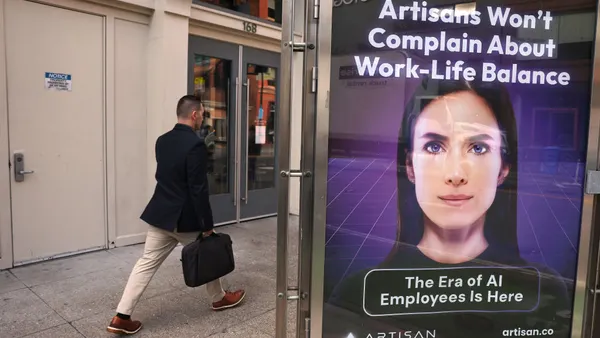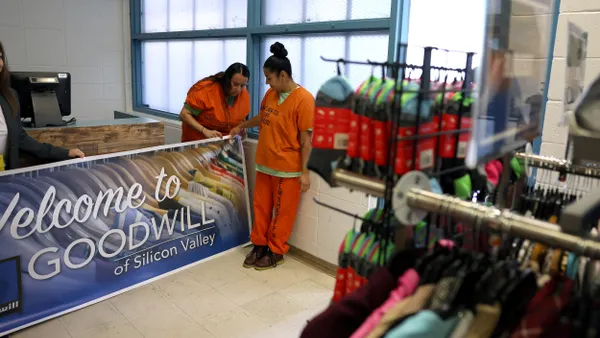About 97% of Gen Z workers say work is part of their identity, yet 83% consider themselves to be job hoppers, according to a Sept. 4 report from ResumeLab.
However, for Gen Z, job hopping isn’t a sign of instability. Instead, it’s a strategic way for these workers to diversify skill sets, pursue new challenges, and seek environments that align with their values and ambitions.
“The top three Gen Z work-related goals cover having a good work-life balance, starting their own business, and achieving success and recognition,” Agata Szczepanek, a career expert at ResumeLab, wrote in the report.
“Employers should be prepared that Generation Z workers are not just passive consumers of workplace dynamics but active contributors to a transformative journey,” she added.
What motivates Gen Z workers?
In a survey of 1,100 U.S.-based Gen Z workers, the top driving forces that motivate them to work were personal development (35%), ambition and desire to prove themselves (28%), family responsibilities (28%). About 1 in 4 cited money, the desire to make a difference, or a sense of purpose. Likewise, 24% said “passion” was a driving force behind their professional pursuits.
In Resume Lab’s survey, Gen Z workers prioritized a healthy work-life balance, satisfying job duties, a good relationship with coworkers, and meaningful job and career development over a high salary.
What makes Gen Z workers want to quit?
At the same time, money is still important. For 70%, a competitive salary plays a major role in deciding whether to stay with their current employer. Among the top reasons for leaving a job, Gen Z workers mentioned working too much overtime, having a clash of values, feeling unhappy due to their job, having a low salary and having a bad manager or boss.
In addition, more than 70% of respondents said they would quit their job if the working environment was toxic, if they lacked development opportunities and if the job hurt their work-life balance. About 75% said they’d quit without having another job lined up.
How can HR attract more Gen Z employees?
In terms of recruitment and talent acquisition, Gen Z workers named several “must-haves,” such as a flexible work schedule, a healthcare package, regular pay raises, regular development opportunities, remote work opportunities and mental health days off.
Gen Z workers also noted that a “perfect boss” would have good decision-making abilities, a focus on employee development and growth, and the ability to inspire and motivate.
“All of these align with Generation Z’s long-term career goals, considering a blend of personal fulfillment, financial stability, innovation, societal impact and continuous learning,” Szczepanek wrote.
How can HR support current Gen Z employees?
Despite their priorities and ideals, however, Gen Z’s career confidence may be suffering. Amid hybrid work and other ongoing life changes, young workers are facing questions about burnout, stability, job readiness and career development.
As Gen Z workers mature in their careers and move into their next jobs, employers may consider a benefits strategy revamp to cover a broad, multigenerational range of workers. Each generation has unique needs and preferences, which the typical “one-size-fits-most” model won’t cover, according to an EY and Limra report.
To attract Gen Z candidates, recruiters may also consider incorporating pay transparency and specific job descriptions in their job listings, according to a recent Symplicity report. Job seekers voiced concerns about having the right qualifications for the jobs they wanted and noted that “too many unrealistic requirements” would discourage them from applying.













